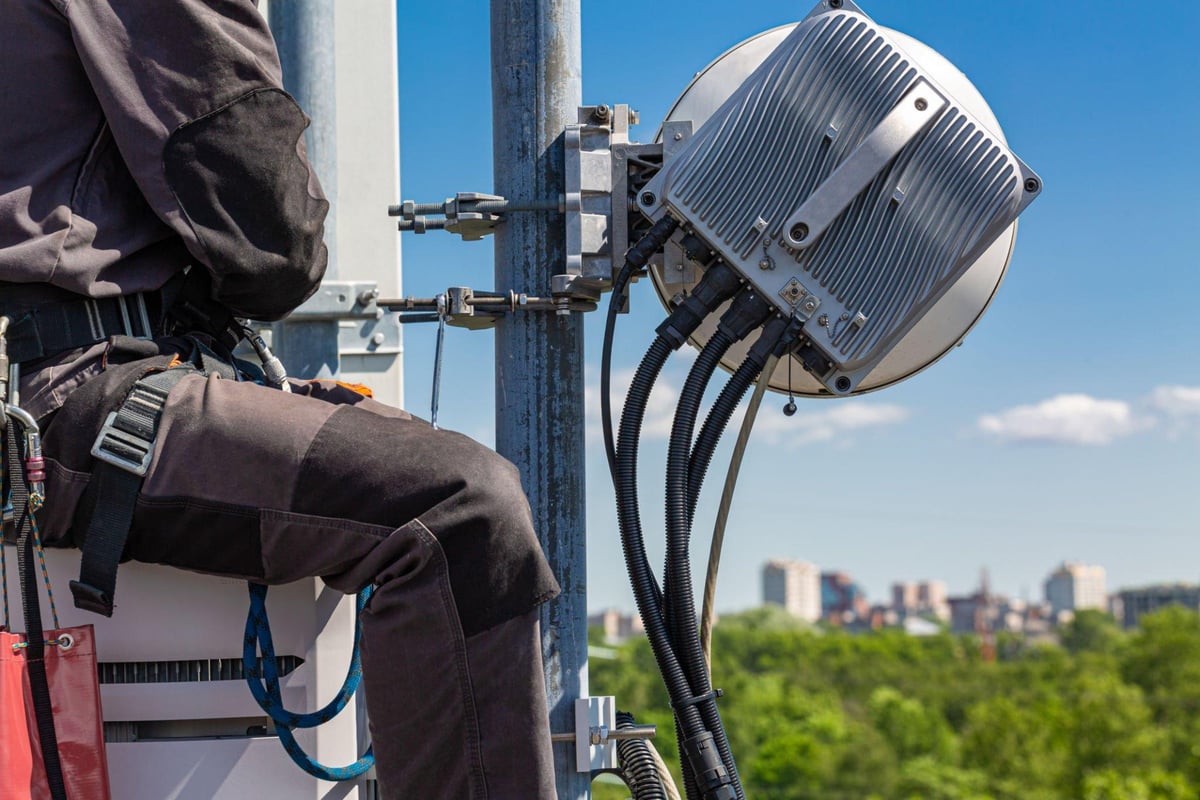
No cost info

Financial aid (may be available)

Financial aid (may be available)

Financial aid (may be available)
The demand for qualified Tower Technicians is growing in St. Louis, and vocational training is an excellent path to enter this booming field. This blog post will provide a comprehensive guide to what a Tower Technician is, what the training requirements are, what to look for in a class, what to expect from the day-to-day class, and the certification process. We will also touch on how to find related jobs and what other classes someone can take after becoming a Tower Technician.

A Tower Technician, also known as a Tower Climber, is a professional who installs, maintains, and repairs cellular, broadcast, and telecommunications towers. This job requires physical strength, endurance, and the ability to work at great heights. It also demands a thorough understanding of telecommunications equipment and safety protocols.
To become a Tower Technician, certain training requirements must be met. This training is instrumental in providing the necessary skills and knowledge to perform the job effectively and safely.
Height Safety Training: This training focuses on safety measures while working at heights, including the use of safety equipment, fall arrest systems, and procedures for emergency situations.
Technical Training: This covers the technical aspects of the job, such as installation, maintenance, and repair of telecommunications equipment.
Choosing the right class for your Tower Technician training is crucial. Here are some factors to consider:
Curriculum: The course should cover all necessary topics, from safety to technical skills.
Instructors: Look for experienced instructors with industry experience who can provide real-world insights.
Hands-on Training: Practical, hands-on training is crucial in this field.
Day-to-day classes for Tower Technician training are a mix of theory and practical sessions.
Theory Sessions: These sessions cover topics such as safety protocols, telecommunications equipment, and maintenance techniques.
Practical Sessions: These sessions provide hands-on experience with installations, repairs, and maintenance on training towers.
After completing the training, students usually undergo a certification process. This process typically involves a written test and a practical evaluation, where students demonstrate their skills in a controlled environment.
After obtaining your certification, you can explore job opportunities in various sectors, including telecommunications companies, broadcast companies, and independent contracting firms. Networking with industry professionals and seeking assistance from your training institute can also aid in the job search.
After becoming a Tower Technician, you might consider furthering your education to broaden your skillset. Some additional courses could include:
Advanced Telecommunications Training: Delve deeper into the intricacies of telecommunications technology.
Safety and Emergency Response Training: Learn more about safety protocols and how to respond effectively in emergency situations.
Management and Leadership Training: If you aspire to take on a leadership role in the future, management training can be beneficial.
In the fast-paced world of telecommunications, technology is always advancing. Continual learning is key to keeping up with these changes and enhancing your skills as a Tower Technician.
Tower Technicians play a crucial role in maintaining the infrastructure that supports our increasingly digital world. From cellular networks to broadcast signals, these professionals ensure we stay connected.
By maintaining and repairing telecommunications towers, Tower Technicians play a critical role in ensuring public safety. Reliable communication networks are essential for emergency services and disaster response.
With experience and additional training, Tower Technicians can advance to roles such as Tower Foreman, Field Engineer, or Project Manager. These positions often come with increased responsibility and increased compensation.
Entering the field of Tower Technology can be a rewarding and lucrative career choice. With the right training and a commitment to continuous learning, you can make a significant impact in this important sector. Whether you're thinking about starting your journey or you're already on your way, information and resources from Dreambound can guide you in your pursuit of a fulfilling career as a Tower Technician.
. Whatever your career aspirations, vocational training can be a stepping stone to achieving your goals.
Dreambound has a bunch of guides about starting in this field, with specific ones for different cities. If you're not in this city or are thinking about moving, check out some other guides below:
Thinking about making a career switch? Dreambound has written thorough guides to help you understand different options available to you.
Dreambound's platform allows prospective students to find the right educational program for them through searching, filtering, and connecting with our extensive selection of career & technical education partners.
Dreambound has over 70 programs across healthcare, technology, business, and industrial trades. This includes programs such as Medical Billing, Cybersecurity, and welding.
Some of our schools offer financial aid for those who qualify. Many others offer payment plans, where you can pay the cost of class over time.
Yes, Dreambound offers many online programs. On Dreambound's search, you can filter by online, in-person, and hybrid (part online, part in-person).
Dreambound is completely free for you to use! We are supported by schools and organizations who pay to advertise on our website, so we can offer all of our career resources for free.